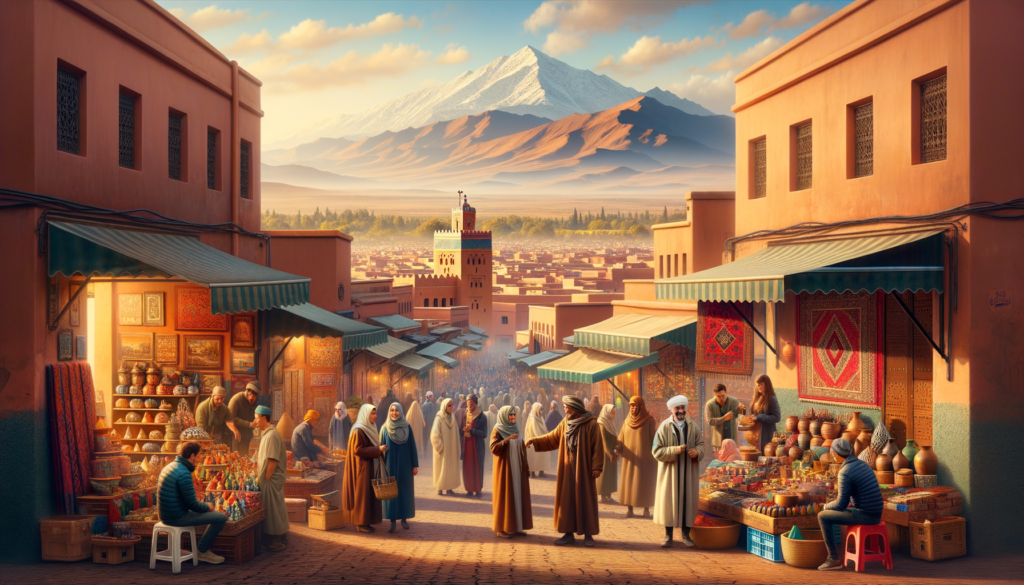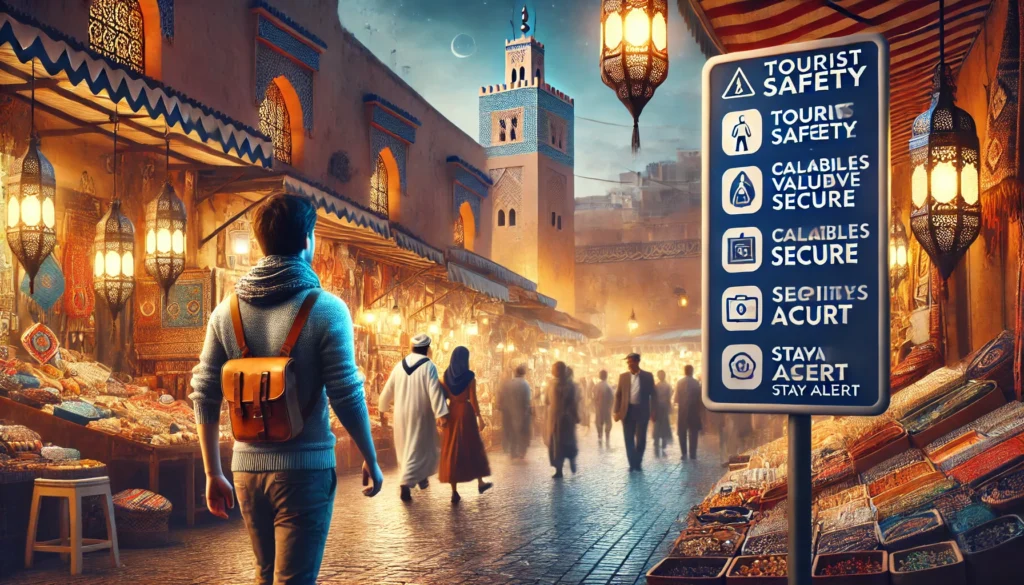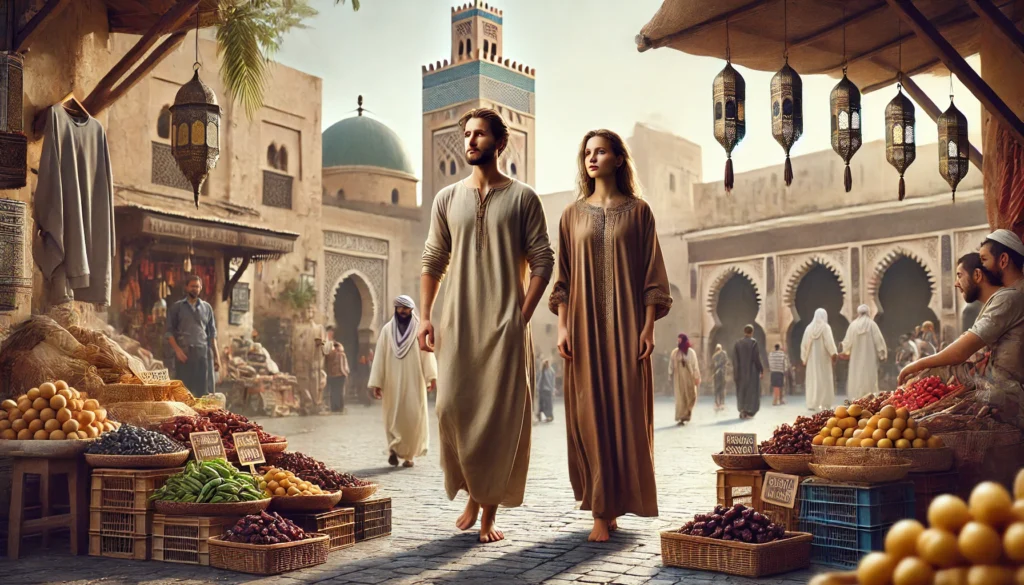
Morocco is a land of mesmerizing contrasts—a place where ancient traditions and modern influences create a cultural mosaic that captivates travelers from around the world. Known for its rich history, enchanting architecture, and vibrant marketplaces, Morocco has carved out a reputation as a top-tier travel destination. Touted as welcoming and brimming with hospitality, it tempts adventurers to explore its labyrinthine medinas, golden deserts, and coastal retreats.
However, like any travel experience, enjoying Morocco to its fullest requires a certain level of cultural sensitivity and practical awareness. By taking precautions and respecting local customs, tourists can ensure a safe, memorable journey through this magical country.
The Friendliness of Morocco’s Population
Morocco’s Ranking in Hospitality
Morocco is no stranger to accolades when it comes to tourism. In fact, it ranked highly in the “Travel and Tourism Competitiveness Report 2013,” showcasing its appeal as a travel destination. This friendly reputation is not unfounded—visitors often leave the country with fond memories of their interactions with Moroccan locals, who are widely known for their warm and accommodating attitudes.
Experiencing Moroccan Hospitality
Hospitality is an integral part of life in Morocco, deeply rooted in its cultural and religious ethos. Visitors frequently encounter this warmth in small, everyday moments—be it a merchant in the bustling souks inviting you to share a cup of mint tea before haggling over a carpet or a local family in a rural village welcoming you to partake in a homemade meal. In Morocco, the generosity of spirit is palpable, making tourists feel like honored guests.
Interactions in Souks, Medinas, and Villages
The colorful souks and medina quarters of cities like Marrakech and Fez are prime spots for experiencing local friendliness in action. Vendors often display a keen curiosity about foreign cultures, striking up lively conversations with tourists. Meanwhile, in the serene rural villages of the Atlas Mountains, locals sometimes invite travelers into their homes, offering an authentic glimpse into traditional Moroccan life that is both heartwarming and unforgettable.
Safety and Security Awareness

Understanding Common Petty Crimes
As a popular tourist destination, Morocco experiences its fair share of petty crimes, particularly in bustling areas like medina quarters, public beaches, and souks. Visitors should remain cautious of pickpocketing, bag-snatching, and drive-by theft, which may occur in crowded or tourist-heavy spots. Staying alert and keeping personal belongings secure can go a long way in avoiding such incidents.
Instances of Violent Crime
While violent crime is relatively rare, it is not entirely absent. Incidents like knife attacks have occasionally been reported, often in isolated or poorly lit areas. Tourists can mitigate risks by avoiding quiet or deserted locales, particularly at night, and sticking to well-populated, frequented areas. Group travel also adds an extra layer of security.
Risks of Financial Fraud
Credit card fraud is another concern in some urban tourist hubs. Although many establishments accept cards, it’s critical to ensure every transaction is legitimate. Tourists should verify their purchases, use cash for smaller transactions, and monitor banking activity during and after their trip to flag any unauthorized charges.
Practical Safety Tips
Keeping safe in Morocco comes down to a few practical precautions:
- Avoid displaying expensive items like jewelry or electronics in public.
- Carry minimal cash and store valuables securely in a hotel safe.
- Stay alert and maintain awareness of your surroundings in crowded areas.
- Consider a money belt or anti-theft bag for added security.
By staying proactive and adopting these habits, you can significantly minimize the risk of becoming a target.
Navigating Scams and Harassment
Beware of Fake Guides
Tourists in Morocco may encounter individuals posing as official guides or offering unsolicited assistance, particularly in popular cities like Marrakech and Fez. These scammers often aim to charge exorbitant fees, lead you astray, or coerce you into visiting shops where they receive commissions.
How to Avoid Scams
To avoid falling prey to such tactics, hire licensed guides with official badges, available through reliable channels like hotels or official tourism offices. Always agree on service terms upfront to avoid misunderstandings.
Handling Aggressive Begging
Begging is not uncommon in Morocco, and some individuals may adopt aggressive tactics. Instances of confidence tricks, where locals feign familiarity or request cash by sharing fabricated sob stories, can also arise. Remaining polite but firm is often the most effective strategy.
Protecting Yourself
If you find yourself feeling uncomfortable, firmly decline any offers and continue on your way. It’s best to avoid prolonged engagement, as prolonged attention may embolden persistent scammers or beggars.
Confidence Tricks to Watch For
Another scam to watch out for is the unsolicited “good samaritan” assisting you with directions or carrying your bags, only to demand significant payment once the service has been rendered. Be wary of unsolicited help or invitations, as these may come with hidden motives.
By staying informed and exercising caution, travelers can enjoy Morocco’s vibrant markets and mesmerizing medinas without compromising their peace of mind.
Cultural Etiquette and Transportation Tips
Cultural Considerations

Morocco’s rich cultural heritage is deeply woven with conservative Muslim traditions, which play a central role in daily life. As a result, tourists are expected to exercise cultural awareness, particularly when it comes to attire. Women are advised to cover their arms, shoulders, and legs, especially in rural areas or religious sites. Men should also dress modestly, avoiding shorts in settings outside beaches.
Beyond clothing, respecting local customs is equally essential. For instance, avoiding public displays of affection, refraining from taking unauthorized photos of people (especially women), and observing Ramadan customs (e.g., not eating or drinking in public when the locals are fasting) can demonstrate sensitivity and make interactions more positive.
Transportation Tips
Morocco’s transportation network offers various convenient options for tourists, particularly in major cities such as Marrakech, Fez, and Tangier. Public transportation, including buses and trains, is relatively affordable and well-connected between key destinations. However, tourists should exercise caution using taxis by choosing official, metered options or pre-negotiating fares for unmetered rides.
Driving in Morocco, while offering the freedom to explore its breathtaking landscapes, can come with potential hazards. Secondary roads, especially in mountain regions, can be unsafe during poor weather conditions, and night driving is generally discouraged due to uneven road conditions and unpredictable traffic patterns. Always carry required vehicle documents and consider renting from reputable companies to ensure coverage and reliability.
For safe and hassle-free exploration, travelers can also rely on services from verified tour guides and organized group travel, particularly if they plan to explore remote areas off the beaten track.
Conclusion
Morocco stands as a vibrant, tourist-friendly destination where tradition meets modernity in a captivating dance of culture, history, and beauty. Its welcoming population and diverse attractions create an unforgettable backdrop for adventurers, culture seekers, and foodies alike. However, a fulfilling visit calls for mindfulness—staying vigilant about petty crime, scams, and respecting local customs can significantly enhance the travel experience.
When travelers approach Morocco with awareness and respect, they are rewarded with an enriching adventure filled with lasting memories. The country’s medinas, Sahara dunes, Atlas Mountains, and hospitable communities await those ready to embrace the balance of allure and precaution. Bon voyage!
Frequently Asked Questions about Traveling to Morocco
Is Morocco a friendly destination for tourists?
Morocco is generally considered very friendly and welcoming to tourists. In fact, the “Travel and Tourism Competitiveness Report 2013” by the World Economic Forum ranked Morocco among the top three most friendly countries for tourists. Moroccan hospitality is often a highlight of the travel experience.
How safe is Morocco for tourists?
Although Morocco is a welcoming destination, tourists should be mindful of certain safety concerns. Petty crimes such as pickpocketing, bag-snatching, and drive-by thefts are common, especially in tourist-heavy areas like medina quarters and beaches. Violent crime, though less frequent, can occur. It is advisable to avoid isolated locations, particularly after dark, and to stay vigilant about your belongings and surroundings. Additionally, credit card fraud and scams are common, requiring extra caution.
What scams and harassment should tourists watch out for in Morocco?
Scams can occur in the form of unofficial tourist guides who may mislead or overcharge visitors. Tourists should only hire guides with official badges authorized by local authorities. Aggressive begging and confidence tricks are also common in some areas, so staying alert is recommended.
Are there any cultural considerations tourists should be aware of?
Morocco is a predominantly conservative Muslim country, and respecting local customs is essential. Tourists, especially women, should dress modestly by covering their shoulders, arms, and legs. Wearing a scarf can also help avoid unwanted attention. By adhering to local cultural norms, visitors can have a smoother experience while blending in with the environment.
What is transportation like in Morocco?
Transportation in Morocco is relatively tourist-friendly in major cities like Marrakech, Fez, and Tangier. However, driving conditions can be hazardous, especially on rural and mountainous roads or during inclement weather. If you plan to drive, ensure you carry all necessary vehicle documentation, including motor insurance, and exercise extra caution when driving at night due to poor lighting in some areas.
What should tourists expect overall when visiting Morocco?
Despite some safety and cultural considerations, most tourists describe Morocco as a safe and enjoyable destination. Visitors can look forward to exploring its rich history, vibrant markets (souks), intricate medinas, and stunning landscapes. Moroccans, particularly in less crowded areas, are renowned for their warmth and hospitality, leaving many travelers with positive memories of their journey.